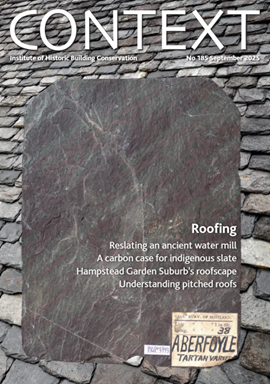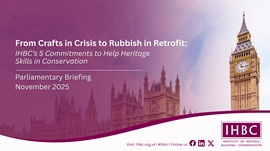Archaeological officer
To help develop this article, click 'Edit this article' above.
A great deal of damage was done to the UK’s archaeological heritage by construction works in the 1960’s. As a consequence, in the 1970’s, local planning authorities began to appoint archaeologists to provide guidance and advice on the protection and management of archaeological sites and the impact of proposed developments on archaeological remains.
All local planning authorities now employ, or retain the services of, archaeological officers. Sometimes this role may be combined with that of conservation officer, although they are very different, albeit related, functions.
Archaeological officers ensure that archaeological remains are identified, recorded, protected, managed, promoted and interpreted.
Their role might include.
- Maintaining a database of archaeological remains, known as the 'Historic Environment Record' (HER) (or Sites and Monuments Record (SMR) or Urban Archaeological Database (UAD)).
- Commenting on draft proposals to ensure that they properly consider the conservation of archaeological remains.
- Assessing planning applications and considering whether proposed developments are likely to affect archaeological remains.
- If they believe there is a reasonable risk that proposed developments will affect archaeological remains, requiring that applicants undertake desk-based studies, and if necessary further evaluations such as site investigations.
- Proposing conditions that might be attached to planning consents to help protect or manage archaeological remains.
- Assessing the competence and suitability of archaeological contractors appointed to undertake archaeological projects.
- Monitoring archaeological projects. This requires that they are given adequate notice of proposed works commencing.
- Providing advice on agricultural an forestry schemes.
- Providing advice on the conservation of ancient monuments and historic landscapes.
- Promoting awareness and understanding through education and outreach programmes.
Where archaeological evaluation of proposed developments is considered necessary, this can be analogous to geotechnical site investigation with comparable costs, duration and lead-in times. Because of the time required, it can somtimes be appropriate to begin evaluations even before they have been required by the planning authority.
Managed intelligently and with foresight, archaeology need not inconvenience any construction project. However, this often requires engagement with the local planning authority’s archaeological officer as soon as possible if it is suspected that proposals may affect archaeological remains. This will help identify the procedures that must be followed and avoid abortive work.
NB All historic buildings embody interpretable archaeological information about the people who designed and used those buildings, much of it not available from other sources. That information is embodied in the layout, structure and fabric of the building and can be recorded and analysed archaeologically. In the UK this is referred to as ‘buildings archaeology’. The National Planning Policy Framework (NPPF) requires assessment and / or evaluation of a building's archaeological potential. Where it cannot be preserved, a detailed record survey should be made.
[edit] Related articles on Designing Buildings Wiki
- Archaeologist.
- Archaeology and construction.
- Building archaeology.
- Building archaeology and conservation.
- Building preservation notice.
- Certificate of immunity.
- Conservation areas.
- Conservation officer.
- Conservation practice survey 2016.
- Demolition.
- Designated areas.
- Historic England.
- Historic Environment Service Provider Recognition.
- Landscape officer.
- Listed buildings.
- National Planning Policy Framework.
- Planning authority.
- Planning permission.
- Scheduled monuments.
- Site survey.
[edit] External references.
IHBC NewsBlog
Latest IHBC Issue of Context features Roofing
Articles range from slate to pitched roofs, and carbon impact to solar generation to roofscapes.
Three reasons not to demolish Edinburgh’s Argyle House
Should 'Edinburgh's ugliest building' be saved?
IHBC’s 2025 Parliamentary Briefing...from Crafts in Crisis to Rubbish Retrofit
IHBC launches research-led ‘5 Commitments to Help Heritage Skills in Conservation’
How RDSAP 10.2 impacts EPC assessments in traditional buildings
Energy performance certificates (EPCs) tell us how energy efficient our buildings are, but the way these certificates are generated has changed.
700-year-old church tower suspended 45ft
The London church is part of a 'never seen before feat of engineering'.
The historic Old War Office (OWO) has undergone a remarkable transformation
The Grade II* listed neo-Baroque landmark in central London is an example of adaptive reuse in architecture, where heritage meets modern sophistication.
West Midlands Heritage Careers Fair 2025
Join the West Midlands Historic Buildings Trust on 13 October 2025, from 10.00am.
Former carpark and shopping centre to be transformed into new homes
Transformation to be a UK first.
Canada is losing its churches…
Can communities afford to let that happen?
131 derelict buildings recorded in Dublin city
It has increased 80% in the past four years.














